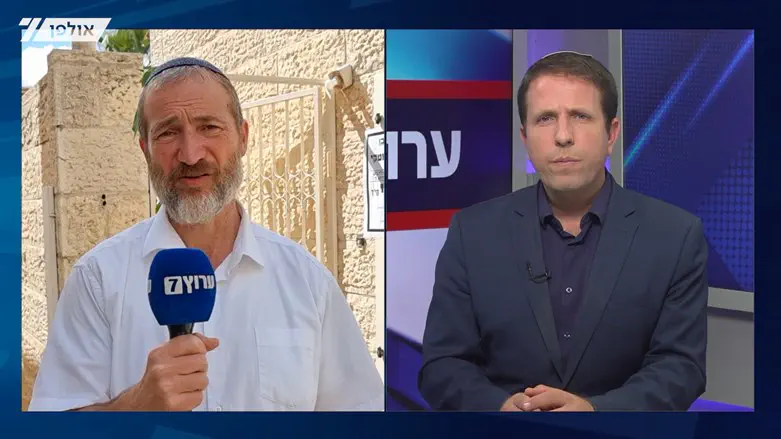
Rabbi Shmuel Slotki, who lost his two sons, Noam and Yishai, in combat against terrorists on October 7th, talks about his sons who left their families and small children and went to the battle where they were killed.
"Both of them were sweeter than honey, handsome, with a sweet smile, both married, they left children behind. Noam, the elder, left Neta Yehuda, and the younger, Yishai, left a daughter named Be'eri Shahar. This is part of our comfort, that they have a continuation and a remnant not only in spirit and soul but also in physical reality ", says Rabbi Slotki.
The two brothers, who have families, understood the meaning of their enlistment in the campaign out of idealism and a willingness to sacrifice for the sake of the people. "They understood that there was a need to help Israel immediately, that the army was not able to arrive at that time to save the towns near Gaza, and they took on the task. Like many others, they enlisted for this task on their own and without being called."
"When I think about this matter deeply, there are many more like them throughout the country who have a handgun or rifle and could have traveled and reached those towns and did not do so, and they chose to do it, it is an amazing thing. A spirit of heroism and responsibility, and a guarantee and dedication for the people of Israel And the Land of Israel. It's an amazing thing that the more you think about it, the more you wonder and marvel," says Rabbi Slotki.
"The pain over two sons' death is unimaginable. The hole is already felt, and the void is huge. The perception in the mind is not yet present, but perhaps part of the task that can alleviate the great loss a little is if the loss is not in vain. It is already not in vain because they saved 500 souls in Kibbutz Alumim who were found in shelters. This is a huge thing, but in order for it not to remain only in this event of saving Kibbutz Alumim but to take the wider place that this event deserves, we as a society must take the message that became clear in the early hours of the battle."
"We must turn the event into a defining event, a symbol and an example, a message of responsibility and mutual guarantee that is required of us as a society, after such a difficult year in which we bled ourselves with quarrels, divisions, demonstrations and mutual injuries that weakened our national resilience and the guarantee and the responsibility, and now we have an opportunity to make amends. If we do not leverage this opportunity for a huge transformation that is required in Israeli society to create a new common and broad social contract, agreed on by the wide range that exists in Israeli society, we may lose the chance. I fear that this will happen and hope and try to do everything so that we don't fall into this pit, but rise up, rise up and strengthen the settlements anew and Israeli society anew in the spirit of mutual guarantee and responsibility."
Rabbi Slotki recounts the days since Simchat Torah: "We receive a huge embrace from all of Israeli society. It started the week they were gone, and it reached its peak when we went to the funeral, and thousands stood in the Ramot neighborhood with flags and signs 'Am Yisrael Chai', standing in the cold and in the dark with loving hearts and tearful eyes. Who stood out there and accompanied us? Haredim, secular, religious, and non-religious, with flags and without flags, without any divider and with a loving heart. It was an amazing connection that if we know how to continue it for the rest of the hours and build a platform of love and acceptance for Israeli society, then our future is guaranteed, and if not, God forbid we fall, and we must not get to this situation."

